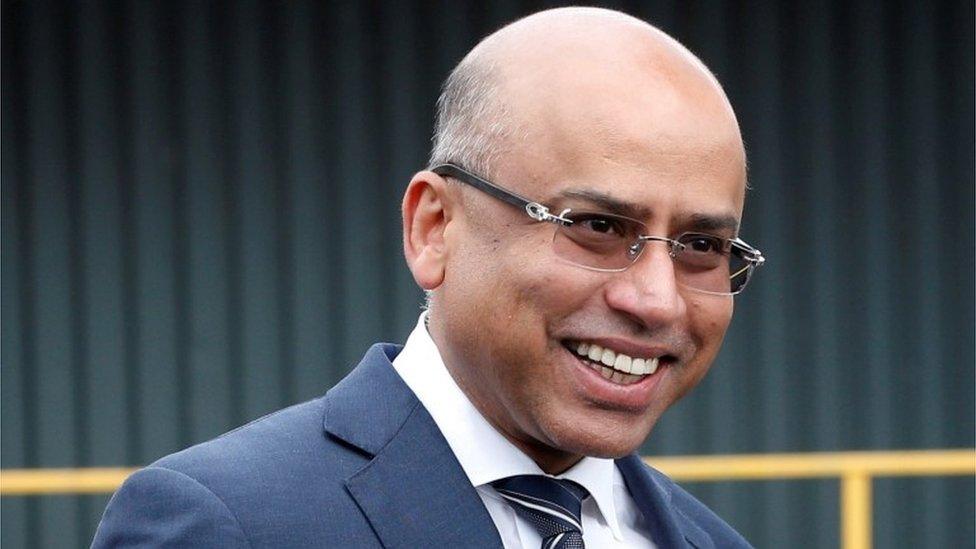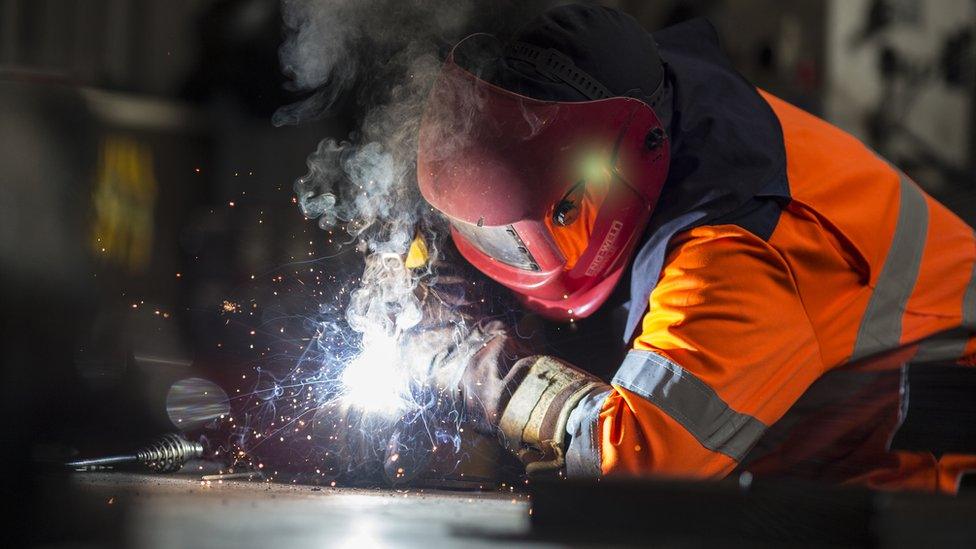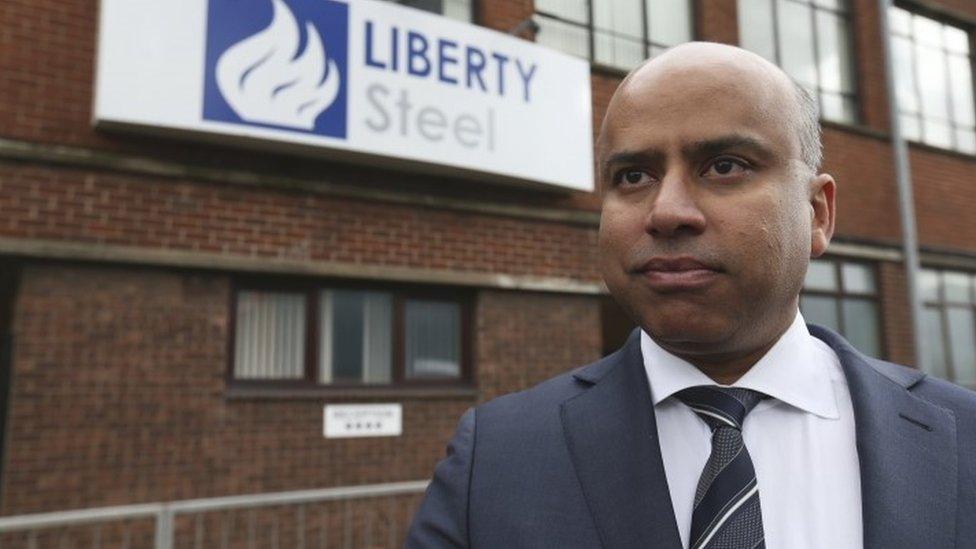Fears for 5,000 UK steel jobs as lender collapses
- Published

Sanjeev Gupta, who has been called the "saviour of steel"
The principal financial backer of one of the UK's largest industrial groups has fallen into administration.
Specialist bank Greensill Capital was the main lender to businessman Sanjeev Gupta's sprawling empire, which includes Liberty Steel.
The appointment of administrators to Greensill puts 5,000 jobs at risk at Liberty Steel and other firms.
In a court filing, Greensill said Mr Gupta's operations were in "financial difficulty" and defaulting on debt.
Mr Gupta declined to comment on the claims, but his business GFG Alliance earlier said that it had adequate funding for its current needs.
Union officials are to hold crisis talks with the steel magnate on Tuesday. Liberty owns 12 steel plants in the UK including in Rotherham, Motherwell, Stocksbridge, Newport and Hartlepool.
The Community union said: "Sanjeev Gupta needs to tell us exactly what the administration means for Liberty's UK businesses and how he plans to protect jobs. The future of Liberty's strategic steel assets must be secured and we are ready to work with all stakeholders to find a solution."
A spokesperson for Grant Thornton said its insolvency practitioners Chris Laverty, Trevor O'Sullivan and Will Stagg had been appointed as joint administrators of Greensill Capital and Greensill Capital Management Company.
"The joint administrators are in continued discussion with an interested party in relation to the purchase of certain Greensill Capital assets. As these discussions remain ongoing, it would be inappropriate to comment further at this time," the spokesperson added.
Mr Gupta, who has been called the "saviour of steel", has defied pessimists in the industry for years by buying up seemingly unloved industrial assets.
These included steel and aluminium plants that many thought could not be run profitably in the face of cut price competition from China.
What are the latest developments?
The BBC understands that Business Secretary Kwasi Kwarteng held an emergency meeting on Sunday with the chief executive of Liberty Steel UK, John Ferriman.
They discussed contingency plans in the event that Greensill went bust.
It is understood the options did not include nationalisation. Further meetings are expected later on Monday.
Mr Kwarteng also chaired a meeting of UK steel executives on Friday at which the future of Liberty, owned by Mr Gupta's GFG Alliance, was brought up,
However, it was not discussed in any detail with this wider group, which included union bosses.
How serious is this for the steel industry?
Liberty Steel is the UK's third-largest steelmaker, employing 3,000 people at 11 sites. Another 2,000 people in engineering businesses within the group are also involved.
That's a substantial chunk of the 32,000 people who work in the industry.
Employment and output have fallen significantly for the steel industry over the last four decades. In its heyday as the state-owned British Steel Corporation in the early 1970s, it had 10 times as many workers.
The whole UK steel industry has gone through a chequered period of ownership since it was privatised in the 1980s.
However, the sector is still considered important by government ministers, regional politicians and business leaders.

So what's gone wrong?
Many of Liberty Steel's assets were part of Tata Steel's UK business until they changed hands for £100m in 2017.
When Mr Gupta's GFG Alliance snapped them up, he was hailed as saving thousands of UK jobs. But his empire has often been criticised for its complicated structure and lack of transparent accounting.
With news of the financial problems facing Greensill Capital, one of Mr Gupta's key sources of finance, those criticisms are now coming home to roost.
Greensill, run by former investment banker Lex Greensill, counts former Prime Minister David Cameron among its paid advisers. The BBC has approached Mr Cameron for comment.
The company specialises in short-term supply chain financing to provide capital for businesses around the world. However, it too has been accused of opaque accounting.
How bad are those financial problems?
Greensill's heavy exposure to Mr Gupta's business has prompted Swiss investment bank Credit Suisse to freeze withdrawals from up to £10bn worth of funds held as security.
Their heavy exposure to each other has proved disastrous for both Greensill and Gupta. Mr Gupta's financing requirements constituted more than 50% of Greensill's lending volumes.
While figures are not available for the proportion of his funding that Mr Gupta raised from Greensill, sources close to Greensill put his funding needs from the firm at $70m a day.
A spokesman for Mr Gupta said Liberty's operations were "running as normal", had adequate funding for their current needs and that the refinancing plans were progressing. It added that a recent upturn in global steel prices was beneficial for the company's prospects.
Liberty is a major supplier to the public, including hydro-power contracts in Scotland and steel contracts for the Ministry of Defence. The government said it was "monitoring the situation closely".
"This is a deeply concerning situation and a very worrying time for Liberty Steel workers," said Lucy Powell, Labour's shadow minister for business and consumers.
"It's vital that the government acts with the urgency required and doesn't wash their hands of the situation."
Related topics
- Published2 March 2021
